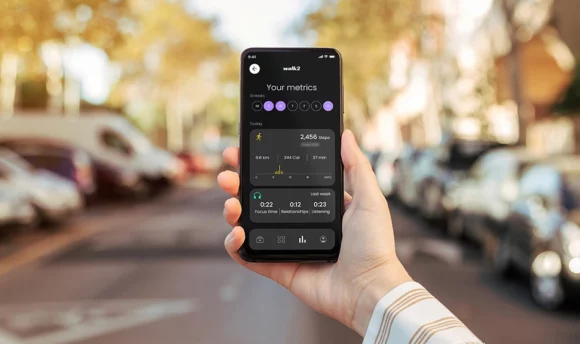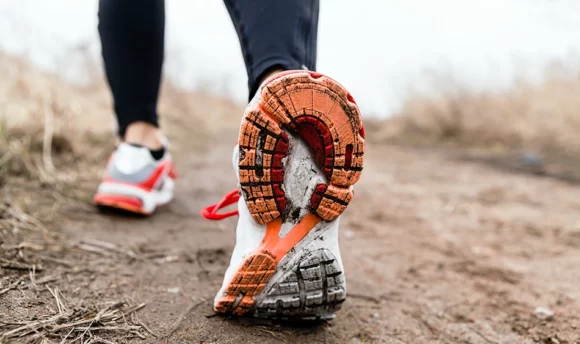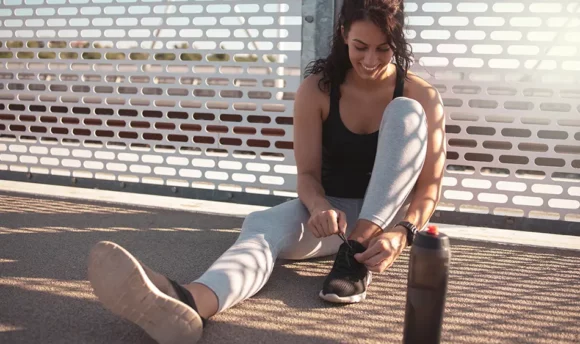What Is the Average Marathon Time: Can You Do It Faster?
Overview of the average marathon time among active athletes worldwide and tips for improving personal records.

Finishing a marathon is a dream for all beginners and novice runners, but it is not an easy job.
It requires a lot of preparation and perseverance to be in the ideal physical condition to complete in a decent time. But what is the average marathon time worldwide?
Find out with Health Reporter’s team how to improve your running pace so you can complete the race of your life like a pro.
What Is the Average Marathon Time?
The average marathon time is 4 hours and 11 minutes. This is the worldwide average marathon finish time according to research, which includes men and women at intermediate level from 20–35 years who have participated in a marathon.
At the beginner level, the average marathon time is 05:35 for both sexes between 20–35 years old. At the advanced level, the best times are around 03:24 in the same age group.
The world record of 2:01:39 is currently held by elite athlete Eliud Kipchoge, achieved in 2018 in Berlin.
The half-marathon is 13.1 miles and is a slightly more reasonable goal for beginners. The average half-marathon time worldwide is 1:50:15 hours for both genders. A good half-marathon time is 01:50:15 hours for both men and women.
Achieving these feats requires arduous training of the cardiovascular system so that you manage to keep up the pace during all the hours you are going to be running and not collapse at the end.
How Long Does It Take to Run a Marathon?
An average runner can complete the 26.2 miles in approximately 4 hours. If you achieve less than this, any number above 3.5 hours will be a good time as high-performance athletes can complete it in just over 2 hours, and these athletes make up only 5% of active runners.
The average marathon time can vary according to the gender and age of the athlete, with men currently being only slightly faster than women – but close enough. Elite male runners have an average finishing time of 02:49, while female runners have an average finishing time of 03:18.
If you are not yet at the physical level to complete a 3- or 4-hour race, you can train for a half-marathon, as a good half-marathon time is just under 2 hours.
What Is Considered a Good Marathon Time?
According to Running Level, an acceptable time for an amateur runner to finish a marathon is 03:48:20, just a few minutes below the world average for both genders.
For a half-marathon, the average time for beginners is 2 hours 24 minutes for men and 2 hours 43 minutes for women.
Some races, such as the Boston Marathon, are more demanding on the time of each athlete, and therefore, it is not a goal every beginner can set. This type of race takes into account the age of the athletes to establish the qualifying times, which change every year.
The first age group is 18–34 years old, and runners must have an established record in official races of 3 hours for men and 3 hours and 30 minutes for women. For older runners, a few minutes are added above these ranges.
What Is the Average and Fastest Marathon Pace?
The average pace for the 20–35 age group is 12 minutes per mile at the beginner level; this includes both men and women. On the other hand, the average half-marathon pace for intermediate men is 7:54min/mile, and for women, it is 9:12min/mile.
Elite male athletes run an average of 06:27min/mile in the same age group, while women achieve a pace of 07:36 minutes per mile. The fastest marathon pace is 04:38 minutes per mile.
For male beginner runners between 20 to 35 years old, the average marathon pace is 11:20min/mile, and the world record is 04:38 minutes in the same age group. The average for the intermediate level is 08:12min/mile.
For beginner women between 20 to 35 years old, the average is 12:43 minutes per mile, the world record being 05:07min/mile. In this age group, the intermediate level has achieved an average marathon pace of 09:29min/mile.
What Factors Impact Marathon Time?
These three factors must be taken into account to determine the differences in average marathon times worldwide:
Age
Age is a determining factor since there are differences in terms of heart rate, muscle mass, or the runner’s experience in each age group. At the professional level, it is known that the best times are always in the age group between 20–35 years and that the decline in average marathon times is seen after 40 years due to a decrease in the athlete’s performance.
Sex
Men, in general, obtain higher records because they have a greater amount of muscle mass in their legs, which gives them strength and endurance to enhance the average men’s marathon time.
The hormonal factor also plays a role because it is precisely testosterone in men that is responsible for greater muscle development. Female estrogens promote fat storage in the legs and hips, which could influence speed during the race and final marathon times.
Running ability
It is the ability that each runner reaches according to the efficiency obtained in previous races, and it is divided into 5 parameters according to Running Level:
- Beginner: Must have run for at least one month and be faster than 5% of all other active runners.
- Novice: A runner with 6 months of regular practice who has managed to run faster than 20% of the runner’s average time.
- Intermediate: Runs faster than 50% of other runners and has 2 years of experience.
- Advanced: A runner with more than 5 years of experience with a personal record faster than 80% of other runners.
- Elite: Athletes faster than 95% of runners who have been training professionally to compete and break world records for more than 5 years.
Male Marathon Running Finishing Times
| Age | Beginner | Novice | Intermediate | Advanced | Elite | WR |
| 10 | 05:55:27 | 04:59:17 | 04:17:13 | 03:45:50 | 03:22:31 | 02:25:35 |
| 15 | 05:07:36 | 04:19:00 | 03:42:35 | 03:15:26 | 02:55:15 | 02:05:59 |
| 20 | 04:57:01 | 04:10:05 | 03:34:56 | 03:08:42 | 02:49:13 | 02:01:39 |
| 25 | 04:57:01 | 04:10:05 | 03:34:56 | 03:08:42 | 02:49:13 | 02:01:39 |
| 30 | 04:57:01 | 04:10:05 | 03:34:56 | 03:08:42 | 02:49:13 | 02:01:39 |
| 35 | 04:58:40 | 04:11:28 | 03:36:07 | 03:09:45 | 02:50:09 | 02:02:19 |
| 40 | 05:06:20 | 04:17:56 | 03:41:40 | 03:14:37 | 02:54:32 | 02:05:28 |
| 45 | 05:19:00 | 04:28:36 | 03:50:50 | 03:22:40 | 03:01:45 | 02:10:39 |
| 50 | 05:32:54 | 04:40:18 | 04:00:54 | 03:31:30 | 03:09:40 | 02:16:21 |
| 55 | 05:48:05 | 04:53:05 | 04:11:53 | 03:41:09 | 03:18:19 | 02:22:34 |
| 60 | 06:04:42 | 05:07:05 | 04:23:55 | 03:51:43 | 03:27:47 | 02:29:22 |
| 65 | 06:23:00 | 05:22:29 | 04:37:09 | 04:03:20 | 03:38:12 | 02:36:52 |
| 70 | 06:43:14 | 05:39:31 | 04:51:47 | 04:16:11 | 03:49:44 | 02:45:09 |
| 75 | 07:10:54 | 06:02:49 | 05:11:49 | 04:33:46 | 04:05:30 | 02:56:29 |
| 80 | 07:55:36 | 06:40:28 | 05:44:10 | 05:02:10 | 04:30:58 | 03:14:48 |
| 85 | 09:07:48 | 07:41:15 | 06:36:24 | 05:48:02 | 05:12:06 | 03:44:22 |
| 90 | 11:11:23 | 09:25:18 | 08:05:50 | 07:06:33 | 06:22:30 | 04:34:59 |
Source: https://runninglevel.com/running-times/marathon-times
Female Marathon Running Finishing Times
| Age | Beginner | Novice | Intermediate | Advanced | Elite | WR |
| 10 | 15:22 | 13:10 | 11:28 | 10:10 | 09:11 | 06:12 |
| 15 | 13:40 | 11:43 | 10:12 | 09:03 | 08:10 | 05:31 |
| 20 | 12:46 | 10:56 | 09:32 | 08:27 | 07:38 | 05:09 |
| 25 | 12:41 | 10:52 | 09:28 | 08:24 | 07:35 | 05:07 |
| 30 | 12:41 | 10:52 | 09:28 | 08:24 | 07:35 | 05:07 |
| 35 | 12:44 | 10:55 | 09:30 | 08:25 | 07:37 | 05:08 |
| 40 | 12:59 | 11:08 | 09:42 | 08:36 | 07:46 | 05:14 |
| 45 | 13:30 | 11:34 | 10:04 | 08:56 | 08:04 | 05:27 |
| 50 | 14:17 | 12:15 | 10:40 | 09:28 | 08:33 | 05:46 |
| 55 | 15:14 | 13:04 | 11:23 | 10:05 | 09:07 | 06:09 |
| 60 | 16:20 | 14:00 | 12:11 | 10:48 | 09:46 | 06:35 |
| 65 | 17:35 | 15:04 | 13:07 | 11:38 | 10:30 | 07:05 |
| 70 | 19:02 | 16:19 | 14:13 | 12:36 | 11:23 | 07:41 |
| 75 | 20:46 | 17:48 | 15:30 | 13:45 | 12:25 | 08:23 |
| 80 | 23:26 | 20:05 | 17:30 | 15:31 | 14:01 | 09:27 |
| 85 | 28:04 | 24:03 | 20:57 | 18:35 | 16:47 | 11:19 |
| 90 | 37:02 | 31:44 | 27:38 | 24:31 | 22:08 | 14:56 |
Source: https://runninglevel.com/running-times/marathon-times
How to Improve Your Running Pace?
Even the most outstanding athlete of these times was once a beginner, so if you are motivated and eager to start, the best time to complete your first marathon is now. Consider these tips to improve your running pace:
Try to keep consistency
Even on the days when you feel like you can’t do it anymore, keep your focus. Try to put constant and honest work into every training to ensure your progress increases gradually. Also, remember to stay consistent with a good diet because it will help you have well-nourished muscles to perform better in the field.
Try different types of runs
Your body improves with each challenge you put it through. If you always run the same way, you may stagnate, making progress look farther away. To avoid this, opt to practice different types of runs, such as:
- Base run: This type of running is done at a moderate pace according to your ability and should be done frequently to improve your aerobic capacity. It is designed to achieve long distances without thinking too much about time.
- Tempo run: It is a good practice to see how fast you can go for 20 minutes running at your maximum capacity. This way, your muscles get used to handling fatigue, and you get your heart pumping faster. Start with a warm-up at a comfortable pace, do your maximum effort for 20 minutes, and then finish with a low-to-moderate-intensity run to complete your planned mileage.
- Progression run: Start with a brisk walk at a comfortable pace and increase the pace; it’s not about the distance you achieve but about increasing the intensity at a moderate-to-high pace.
Other types of running are long runs, recovery runs, fartlek, hill repeats, and intervals. You can select the one that is most convenient to increase your running pace and average time.
Do other types of exercises
A good runner knows that they need to strengthen all the muscles in their body in order to have better balance, speed, and endurance. That’s why it’s important to add other types of exercises to your routines:
- Power exercises: Jump squats, leg press, barbell curl, jumping with weights, etc.
- Jumping rope
- High-intensity interval training
- Speed workouts
- Burpees
A Word From Our Coach
The marathon and its other variants, such as the half-marathon, are multilevel running types that allow you to improve over time. You can start without worrying about getting the fastest numbers elite athletes do.
Achieving a comfortable pace that allows you to complete the 26.2-mile marathon is a great cardiovascular workout that enhances your health in the long term and improves blood pressure. It also promotes weight loss because of the calories you can burn.
A 140-pound person can burn 13.2 calories per minute. That means if you completed a marathon in 4 hours, which is around the average marathon finish time, you would have burned over 3,000 calories, which implies that marathoners require specialized nutrition to achieve their goals
Conclusion
A marathon is a 26.2-mile race that takes place in different locations around the world and is an important event for both the sponsoring city and the athlete’s experience.
Achieving the average marathon finish time requires consistency and adequate training that combines strength, endurance, and aerobic capacity improvement.
The factors that affect marathon and half-marathon time are age, gender, and the athlete’s ability, the latter being able to improve as the athlete progresses in preparation to reach the professional level.
Any time between 3 to 4 hours is a great time to finish the race, only 5% of active elite marathon runners have achieved such a feat in slightly more than 2 hours.

















































 Select your language:
Select your language: 








